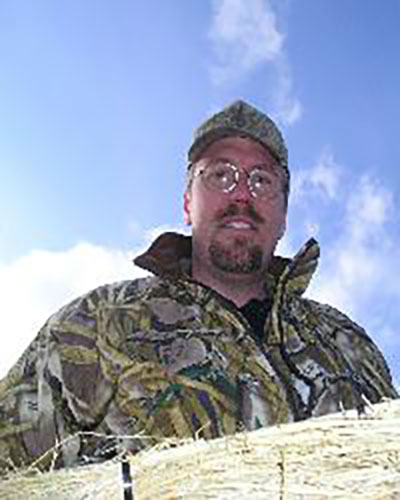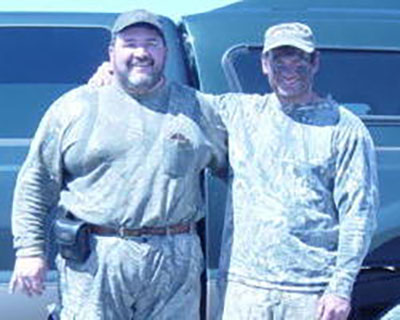A Guide To Tipping Your Guide
A Guide To Tipping Your Guide!
By Mike Moen

Planning a guided hunt today is easier than ever before. With the tools that the internet offers, a hunter can sit in the comfort of his own home and search through a seemingly endless supply of outfitter websites. These sites usually contain everything that a prospective hunter needs to know about an outfit. Information about the area hunted, accommodations, pictures of animals harvested in the past, and rates for each of the different hunts offered are just a click away. But the one thing that you won’t find is how much gratuity you should leave when your hunt is over. This is a topic that most guides and outfitters step lightly around when asked. Giving a specific dollar amount or percentage of the hunt cost can seem presumptuous, and because each hunt can be so different, coming up with an average tip can be tough. Unfortunately this gray area can be very confusing to hunters, especially those who have never been on a guided hunt before.
To start with, it should be understood that a tip is not required.
A good guide shouldn’t expect a tip simply because he shows up. Those that do generally don’t stay in the business for long. Most guides are there because they truly love what they do. If you choose not to tip, nobody is going to call the authorities and have you hauled off to jail. That being said, it is important to realize that what a guide provides you is a quality service that would be missing if you did the hunt on your own. A tip is a good way of saying thank you for this service.
If your guide is not the outfitter, you should realize that there are some things that may be out of his control. Generally, guides who are not the owner of the outfit are told what to do. They may not have any say in choosing the area to hunt, or what your accommodations will be during your stay. To punish them by not leaving a tip because the outfitter may have misled you really isn’t fair. Your tip for your guide should be based on the job he did for you. A good guide is not just someone who tells you when to pull the trigger. For the duration of the hunt he should be your partner. He should be willing to work as hard as he can to help you fill your tags and to make sure you have a safe hunt.
For some businesses the outfitter is also your guide. In this case the person guiding you is also responsible for all of the details and accommodations involved in setting up your hunt as well as the hunt itself. This is most likely the person you talked to on the phone and who told you what to expect during your stay. He is responsible for following through with his promises of what the hunt will be like as well as the state of the accommodations and food. It is his job to take care of all the details to make your hunt enjoyable. I believe it is fair to take into account all of these factors when determining how much gratuity to leave. Whether or not to tip your guide if he is also the outfitter is kind of a gray area. Technically it is ok not to tip the owner, and some people choose not to. In my mind if the hunt is as promised, and the guide busts his tail for me, it doesn’t matter who he is, I’ll leave a tip.
In many camps, the guide or outfitter isn’t the only one working to keep things running smooth. There is usually someone around to do the cooking, and perhaps a wrangler to keep tabs on the horses. If this is the case, tipping these folks for a job well done is very appropriate.
Building A Good Relationship With A Quality Outfitter Can Be A Valuable And Mutually Beneficial Relationship That Can Last A Lifetime!
So how much should you tip? When you eat at a restaurant it is widely known that a 15% tip is the going rate for a waitress, but there is no standard for a hunting guide. Different people have different expectations, and this can make it hard to know what a fair tip is. In my mind, though, I would say that a good tip for a guide would start in the neighborhood of 8-10% of the cost of the hunt. For most waterfowl hunts, that would be around $25 per day, and for a 5 day big game hunt somewhere in the $250-$350 ballpark. For camp cooks and other hands, something like $10-$15 per day would be a good starting point. Also, it is obviously okay to tip more. If your guide and camp help show you the best week of your life, by all means give them a little extra if you’re comfortable with it.

One last thing to keep in mind is that in most cases the amount you tip shouldn’t reflect whether or not you filled your tags or downed your limits. If you were unsuccessful because your guide spent most of the day sleeping on the hillside, or stuck you in a tree so he could head out and fill his own tags, by all means take it out of your tip. But most guides aren’t like that and will usually do all they can to make your hunt a success. Bad shooting on your behalf, uncooperative animals or weather shouldn’t affect the amount you tip. Remember that we are hunting wild game in their environment, and there are certain things that are out of our control. If your guide does everything he can to put you in a position to be successful a good tip is a great way to say thank you.
Additional Tips From The Pro’s Articles
- Decoying And Calling: The Hard Facts!
- Decoying Canada Geese – Decoying Canada Geese
- Retrievers & Chiropractic – Can An Animal Chiropractor Help?
- Retriever Performance Events And Why You Should Care
- The Scent Control Debate
- Ten Tips For A More Successful Pheasant Hunt
- Wanton Waste Laws – What Do They Mean & Why Do They Exist?
- How To Get Started Bow Hunting
- The Perfect Deer Rifle
- Exercise Induced Collapse (EIC) In Retrievers – Hunters Beware!
- A Guide To Tipping Your Guide
- Are Canada Geese Actually Getting Smarter Each Fall?
- Top 5 Criteria To Look For in A Fishing Report
- How High Is Too High?
- Turkey Hunting Tips And Tactics
- Realistic Expectations For A Quality Guided Spring Snow Goose Hunt
- Conditioning Your Retriever For The Upcoming Season
